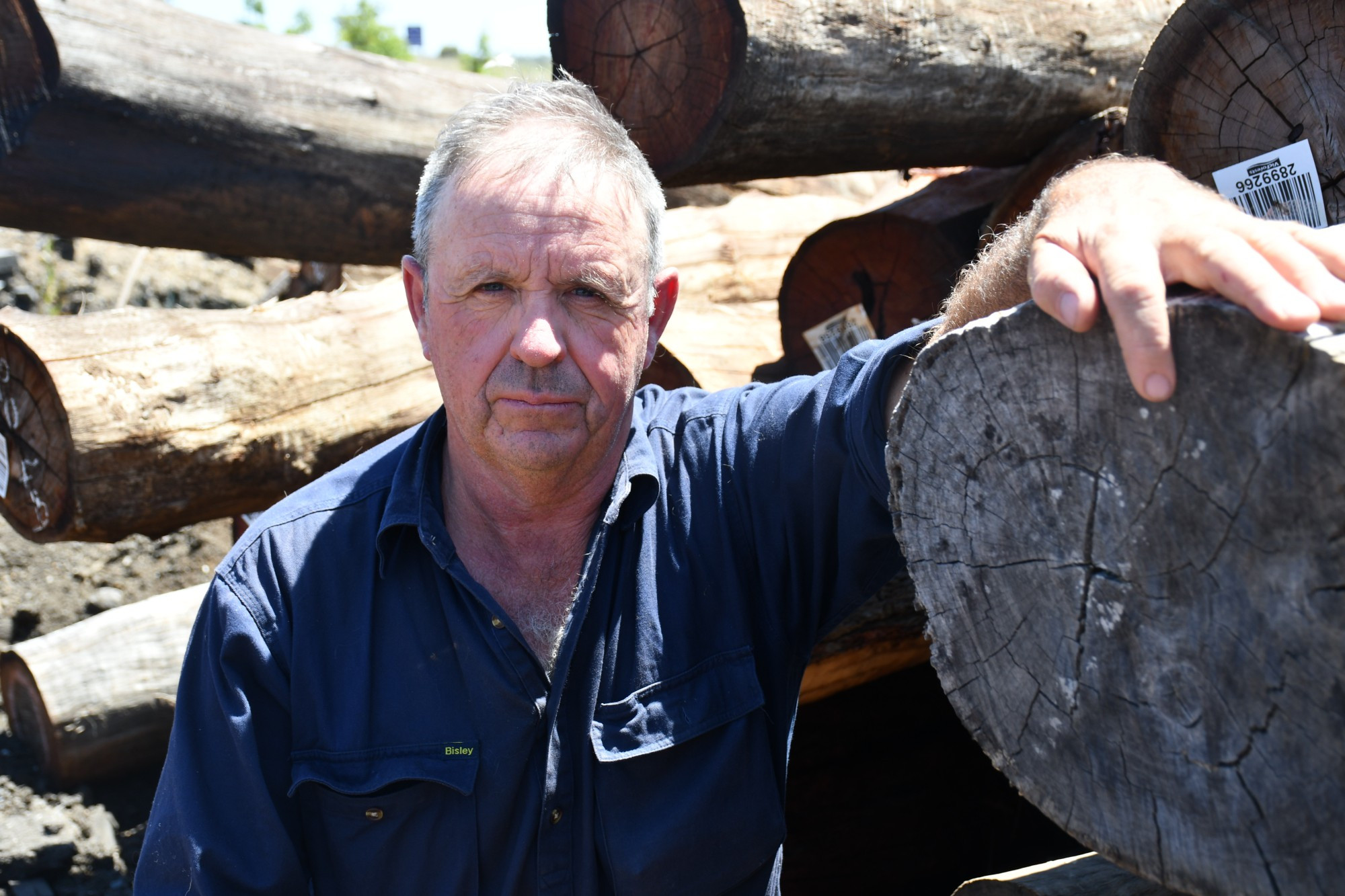General News
19 February, 2024
Forestry operators advocate to secure fair compensation as native logging ends
While most people enter the job market as teenagers, local business owner, Alistair Hull is facing the laborious prospect of seeking employment in his 60s. This “difficult” move comes after his retirement plans were axed. Mr Hull, who used to...

While most people enter the job market as teenagers, local business owner, Alistair Hull is facing the laborious prospect of seeking employment in his 60s.
This “difficult” move comes after his retirement plans were axed.
Mr Hull, who used to run Talbot Timbers, is one of many community forestry operators impacted by the Victorian Government’s decision to cut down its commercial native timber harvesting program in state forests.
Logging operations ceased two weeks ago, on February 5 — six years ahead of the government’s original timeline to phase it out.
The decision to accelerate the closure was announced in May 2023, alongside which the State Government also launched a support package to compensate affected businesses.
According to the Department of Energy, Environment and Climate Action (DEECA), this package consists of — volume compensation payments, a payment of up to $1,000,000 for non-fully depreciated plant and equipment used for native timber harvesting or processing operations, and a reimbursement payment for any employee statutory redundancy costs.
But it may not be enough to make up the losses Mr Hull and others have incurred after logging was stopped.
“We started the business nearly 40 years ago and we’ve grown so much — now, it’s valueless,” he said.
Calling the compensation offered unfair, Mr Hull said while DEECA was making payments for one year’s worth of logs, it also needed to consider the loss of the business.
“It’s the companies that are suffering,” he added.
“Employees of the businesses are getting redundancies and some of those are quite generous, they’ve (the government) done a good job with that but the businesses themselves are not being looked after.”
If the government had not fast-tracked the industry’s closure, Mr Hull estimates that he could’ve generated around $3 million from his business — all of which he now puts down to lost income.
Apart from the inadequate payback, the future of forest and fire management could also be splintered.
“We were part of a regime where we would thin out the forests for its [overall health] and it would also help with fire prevention,” Mr Hull said.
“As a byproduct of that thinning work, there would be firewood coming out for the community’s use so that’s not available anymore either.
“I don’t know what the plan is going forward.”
Not only is potential uncertainity planked on top of the industry, Mr Hull’s retirement is also in question.
The 63-year-old would have been financially set up for when he decided to put down the chainsaw — but that’s not the future he could be stepping into.
“All this time we were thinking Talbot Timbers would be a business we could sell and with those funds we would have enough to retire,” Mr Hull said.
“That avenue is now completely gone. It’s hard to sell a mill if you don’t have the resources to put in the mill.
“I might have to get a job now and after working for yourself for four decades it’s going to be difficult working for someone else — it is not a pleasant option.”
However, there are outcomes that would be more desirable.
Community forestry operators are currently advocating for the government to offer them five-year forest and fire management service agreements, similar to those that have been given to VicForest harvest contractors.
“Either we get these contracts or we get proper compensation for the business or our machinery,” Mr Hull said.
To ensure their voices were heard, Mr Hull and other operators have been engaging in conversations with DEECA representatives as well as with Member for Ripon Martha Haylett, who has always been a staunch supporter of the local cohort.
“I have worked closely with forestry workers across Ripon since the Victorian Government announced the end to native timber harvesting,” Ms Haylett said.
“Initially, the smaller-scale operators across Western Victoria were not included in compensation compared to the bigger timber mills in the state’s East. I fought hard for them to be included and am glad they now are.
“Whilst we have made significant progress since the initial announcement, there is still work [to do] — workers in Ripon have run boutique, selective thinning operations for decades, and I haven’t met anyone who loves and cares for the bush more than they do.
“I will continue to fight for local forestry workers across our region to make sure they are supported through this difficult transition.”
While Mr Hull is glad to have Ms Haylett’s backing, he said there’s space for the Central Goldfields Shire Council to step in too.
“There’s jobs going out of the region and I think council could be lobbying to the State Government to help people in getting those contracts,” he said.
“It’s in the interest of the community that management continues in the forest and if the government could get those contracts [to locals] then the council should be pushing for that.”
